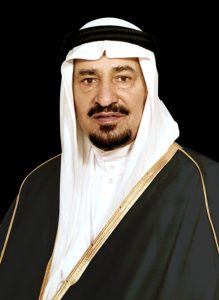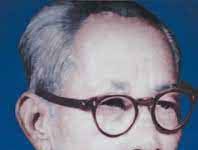King Khalid bin Abdulaziz | Brief Biography
King Khalid bin Abdulaziz
King Khalid bin Abdulaziz Al Saud was the fifth King of Saudi Arabia, who ruled from 1975 until his death in 1982. He was born in Riyadh in 1913 and was one of the sons of the founder of Saudi Arabia, King Abdulaziz. King Khalid was an important figure in the modern history of Saudi Arabia, and his rule saw significant changes in the country’s political and economic landscape.
King Khalid was educated in both religious and modern subjects, and he held a variety of positions in the government, including serving as Governor of the Eastern Province and as Minister of the Interior. He was known for his wisdom, fairness, and strong leadership, and he was greatly respected by the people of Saudi Arabia.
His reign began in 1975, following the death of his brother, King Faisal. He faced several challenges during his rule, including the Iranian Revolution, the Soviet invasion of Afghanistan, and the rise of radical Islamist movements in the region. Despite these challenges, King Khalid was able to maintain stability and security in Saudi Arabia, and he continued to promote modernization and economic growth.
One of King Khalid‘s most notable achievements was his role in the establishment of the Organization of the Islamic Conference, an organization that brings together Muslim countries from around the world to promote cooperation and unity. He was also instrumental in the establishment of the Gulf Cooperation Council, an organization that promotes economic and political cooperation among the Gulf states.
He died in 1982, and he was succeeded by his brother, King Fahd. His legacy continues to be remembered and honored in Saudi Arabia, and he is widely regarded as one of the country’s greatest leaders. 0 0 0.
Sources:
“Khalid bin Abdulaziz Al Saud”. Encyclopædia Britannica.
“Khalid bin Abdulaziz Al Saud”. Saudi Arabian Royal Family.
“Khalid bin Abdul Aziz Al Saud”. Al-Islam.
“KKhalid bin Abdulaziz”. The New York Times.
“The Reign of K Khalid bin Abdulaziz Al Saud (1975-1982)”. The Diplomat. ***
N.B. The article originally belongs to the book ‘Brief Biographies of Eminent Monarchs‘ by Menonim Menonimus.
Books of Biography by M. Menonimus:
- The World Writers-Brief Biographies
- Introduction to World Writers
- Introduction to World Personalities
- Love of Reputed Persons
- Brief Biographies of Ancient Thinkers and Writers..
Additional Searches:











